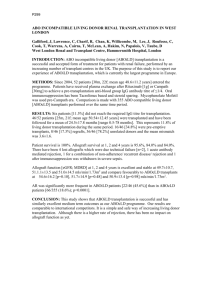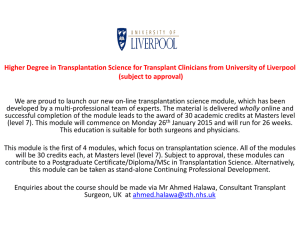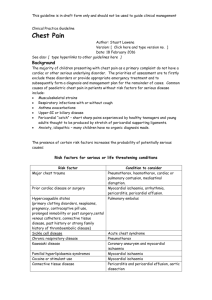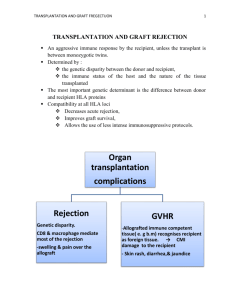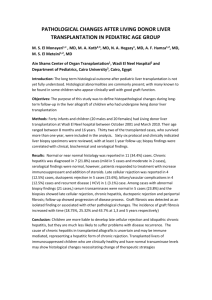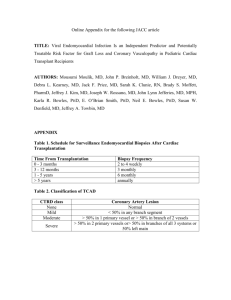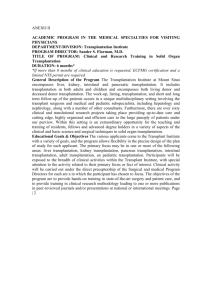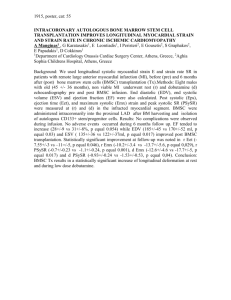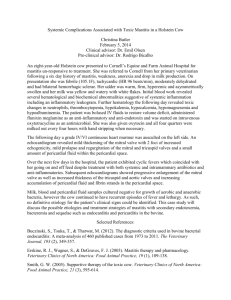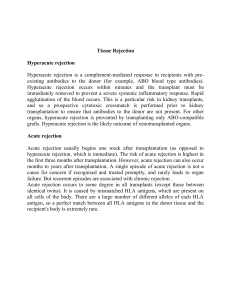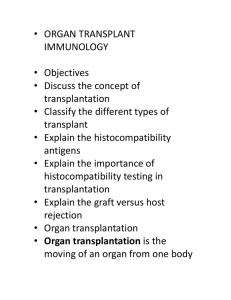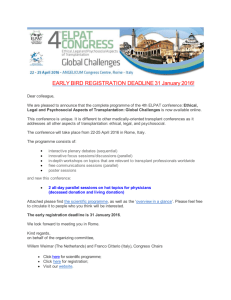late myocardial involvement with pericardial
advertisement
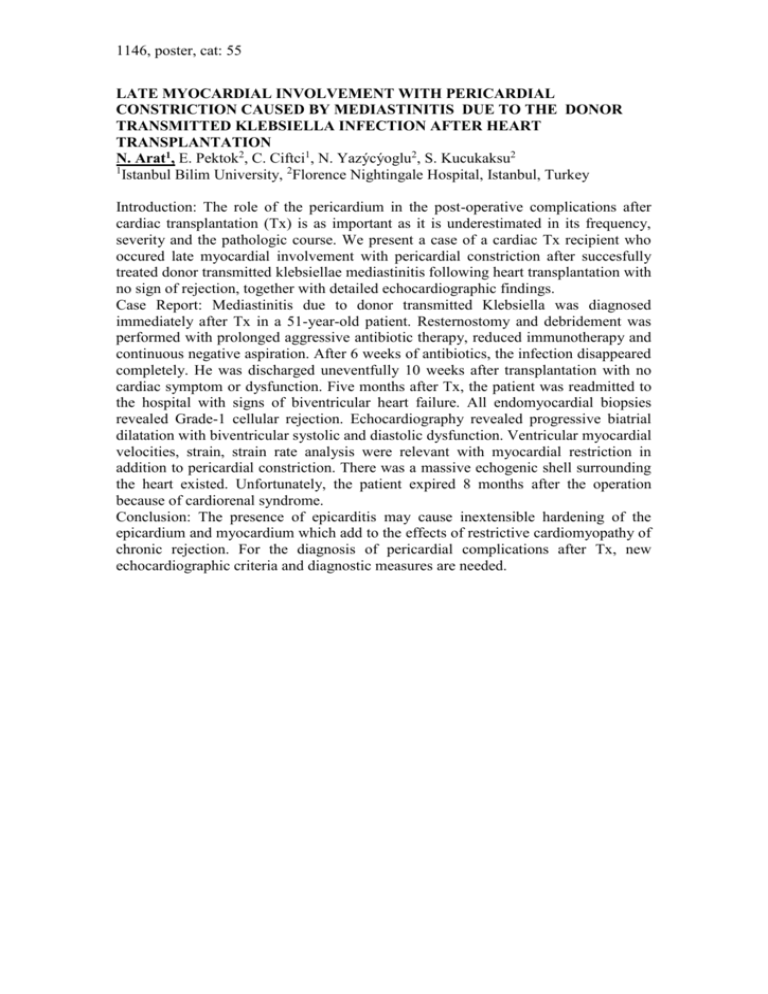
1146, poster, cat: 55 LATE MYOCARDIAL INVOLVEMENT WITH PERICARDIAL CONSTRICTION CAUSED BY MEDIASTINITIS DUE TO THE DONOR TRANSMITTED KLEBSIELLA INFECTION AFTER HEART TRANSPLANTATION N. Arat1, E. Pektok2, C. Ciftci1, N. Yazýcýoglu2, S. Kucukaksu2 1 Istanbul Bilim University, 2Florence Nightingale Hospital, Istanbul, Turkey Introduction: The role of the pericardium in the post-operative complications after cardiac transplantation (Tx) is as important as it is underestimated in its frequency, severity and the pathologic course. We present a case of a cardiac Tx recipient who occured late myocardial involvement with pericardial constriction after succesfully treated donor transmitted klebsiellae mediastinitis following heart transplantation with no sign of rejection, together with detailed echocardiographic findings. Case Report: Mediastinitis due to donor transmitted Klebsiella was diagnosed immediately after Tx in a 51-year-old patient. Resternostomy and debridement was performed with prolonged aggressive antibiotic therapy, reduced immunotherapy and continuous negative aspiration. After 6 weeks of antibiotics, the infection disappeared completely. He was discharged uneventfully 10 weeks after transplantation with no cardiac symptom or dysfunction. Five months after Tx, the patient was readmitted to the hospital with signs of biventricular heart failure. All endomyocardial biopsies revealed Grade-1 cellular rejection. Echocardiography revealed progressive biatrial dilatation with biventricular systolic and diastolic dysfunction. Ventricular myocardial velocities, strain, strain rate analysis were relevant with myocardial restriction in addition to pericardial constriction. There was a massive echogenic shell surrounding the heart existed. Unfortunately, the patient expired 8 months after the operation because of cardiorenal syndrome. Conclusion: The presence of epicarditis may cause inextensible hardening of the epicardium and myocardium which add to the effects of restrictive cardiomyopathy of chronic rejection. For the diagnosis of pericardial complications after Tx, new echocardiographic criteria and diagnostic measures are needed.
